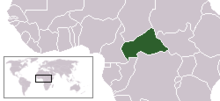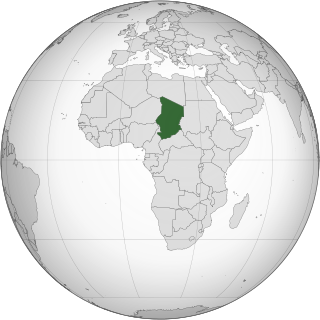
Lesbian, gay, bisexual, and transgender (LGBT) people in Chad face legal challenges not experienced by non-LGBT residents. Both male and female forms of same-sex sexual activity are illegal in the country. Before the new penal code took effect in August 2017, homosexual activity between adults had never been criminalised. There is no legal protection against discrimination based on sexual orientation and gender identity.
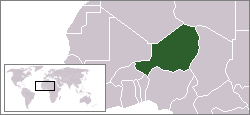
Lesbian, gay, bisexual, and transgender (LGBT) people in Niger face legal challenges not experienced by non-LGBT residents. Although same-sex sexual activity is legal, the Nigerien LGBT community faces stigmatization among the broader population.
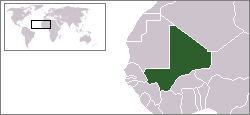
Lesbian, gay, bisexual, and transgender (LGBT) people in Mali face legal and societal challenges not experienced by non-LGBT residents. Although same-sex sexual activity is not illegal in Mali, LGBT people face widespread discrimination among the broader population. According to the 2007 Pew Global Attitudes Project, 98 percent of Malian adults believed that homosexuality is considered something society should not accept, which was the highest rate of non-acceptance in the 45 countries surveyed.

Lesbian, gay, bisexual, and transgender (LGBT) people in the Democratic Republic of the Congo (DRC) face discrimination and legal challenges not experienced by non-LGBT residents. Same-sex sexual activity is legal for both males and females in the Democratic Republic of the Congo, although LGBT individuals may still be targeted for prosecution under public indecency provisions on occasion.
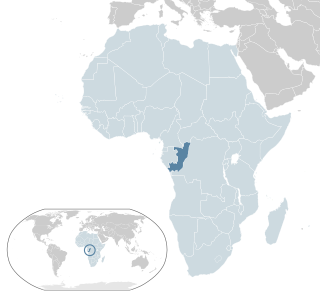
Lesbian, gay, bisexual, and transgender (LGBT) people in the Republic of the Congo face legal challenges not experienced by non-LGBT residents. Both male and female expressions of homosexuality are legal in the Republic of the Congo, but same-sex couples and households headed by same-sex couples are not eligible for the same legal protections available to opposite-sex couples, with reports of discrimination and abuses towards LGBT people.

Lesbian, gay, bisexual, and transgender (LGBT) people in Gabon face legal challenges not experienced by non-LGBT residents. Except for a period between July 2019 and June 2020, same-sex sexual activity has generally been legal in Gabon.
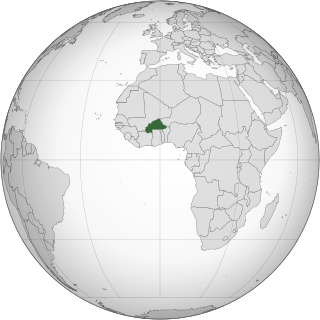
Lesbian, gay, bisexual, and transgender (LGBT) people in Burkina Faso face legal issues not experienced by non-LGBT citizens. Although same-sex sexual acts are legal for both men and women in Burkina Faso, there is no legal recognition of same-sex marriage or adoption rights.
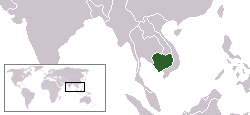
Lesbian, gay, bisexual, and transgender (LGBT) people in Cambodia face legal challenges not experienced by non-LGBT residents. Same-sex sexual activity is legal in Cambodia. Cambodia provides no anti-discrimination protections for LGBT people, nor does it prohibit hate crimes based on sexual orientation and gender identity.

Lesbian, gay, bisexual, and transgender (LGBT) people in Kenya face significant challenges not experienced by non-LGBT residents. Sodomy is a felony per Section 162 of the Kenyan Penal Code, punishable by 21 years' imprisonment, and any sexual practices are a felony under section 165 of the same statute, punishable by 5 years' imprisonment. On 24 May 2019, the High Court of Kenya refused an order to declare sections 162 and 165 unconstitutional. The state does not recognise any relationships between persons of the same sex; same-sex marriage is banned under the Kenyan Constitution since 2010. There are no explicit protections against discrimination on the basis of sexual orientation and gender identity. Adoption is restricted to heterosexual couples only.

Lesbian, gay, bisexual, and transgender (LGBT) people in Cape Verde are afforded greater protections than those in many other African countries. Homosexual activity has been legal in Cape Verde since 2004. Additionally, since 2008, employment discrimination on the basis of sexual orientation has been banned, making Cape Verde one of the few African countries to have such protections for LGBT people. Nevertheless, Cape Verde does not recognize same-sex unions or marriages, meaning that same-sex couples may still face legal challenges not experienced by non-LGBT residents. Households headed by same-sex couples are also not eligible for the same legal protections available to opposite-sex couples.

Lesbian, gay, bisexual, and transgender (LGBT) people in Benin face legal challenges not experienced by non-LGBT residents. Although same-sex sexual acts for both men and women are legal in Benin, homosexuals continue to face widespread persecution and are rarely open about their sexuality. They are also considered by many as deviants to the society, and homosexuality is often called a disease brought by white people to the country. LGBT persons additionally face stigmatization among the broader population.

Lesbian, gay, bisexual, and transgender (LGBT) people in Burundi face legal challenges not experienced by non-LGBT citizens. While never criminalized before 2009, Burundi has since criminalized same-sex sexual activity by both men and women with a penalty up to two years in prison and a fine. LGBT persons are regularly prosecuted and persecuted by the government and additionally face stigmatisation among the broader population.
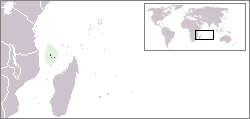
Lesbian, gay, bisexual, and transgender (LGBT) people in Comoros face legal challenges not experienced by non-LGBT residents. LGBT persons are regularly prosecuted by the government and additionally face stigmatization among the broader population.

Lesbian, gay, bisexual, and transgender (LGBT) people in Guinea face legal challenges not experienced by non-LGBT residents. Both male and female expressions of same-sex sexual activity are illegal in Guinea, and discriminatory attitudes towards LGBT people are generally tolerated in the nation.

Lesbian, gay, bisexual, and transgender (LGBT) people in Rwanda face legal challenges not experienced by non-LGBT residents. While neither homosexuality nor homosexual acts are illegal, homosexuality is considered a taboo topic, and there is no significant public discussion of this issue in any region of the country and LGBT people still face stigmatization among the broader population. No anti-discrimination laws are afforded to LGBT citizens, and same-sex marriages are not recognized by the state, as the Constitution of Rwanda provides that "[o]nly civil monogamous marriage between a man and a woman is recognized". LGBT Rwandans have reported being harassed, blackmailed, and even arrested by the police under various laws dealing with public order and morality.
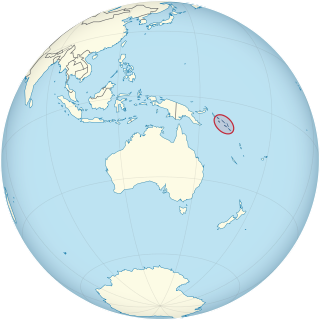
Lesbian, gay, bisexual, and transgender (LGBT) people in Solomon Islands face legal challenges not experienced by non-LGBT residents. Male same-sex sexual activity is illegal, punishable by up to 14 years imprisonment, but the law is not enforced.
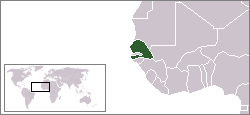
Lesbian, gay, bisexual, and transgender (LGBT) people in Senegal experience legal persecution. Senegal specifically outlaws same-sex sexual acts and, in the past, has prosecuted men accused of homosexuality. Members of the LGBT community face routine discrimination in Senegalese society.
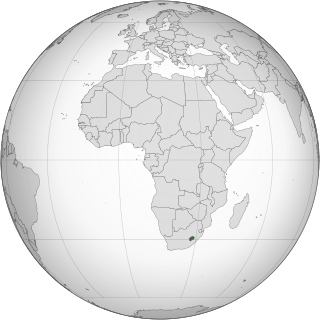
Lesbian, gay, bisexual, and transgender (LGBT) people in Lesotho face legal challenges not experienced by non-LGBT residents. Lesotho does not recognise same-sex marriages or civil unions, nor does it ban discrimination on the basis of sexual orientation or gender identity.

Lesbian, gay, bisexual, and transgender (LGBT) people in Togo face legal challenges not experienced by non-LGBT residents. Both male and female same-sex sexual activity is illegal in Togo.
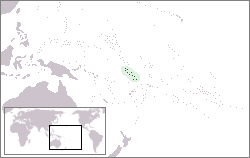
Lesbian, gay, bisexual and transgender (LGBT) people in Tuvalu face challenges not faced by non-LGBT people. Sections 153, 154 and 155 of the Penal Code outlaw male homosexual intercourse with a penalty of up to 14 years in prison, but the law is not enforced. Employment discrimination on the basis of sexual orientation has been banned since 2017.
